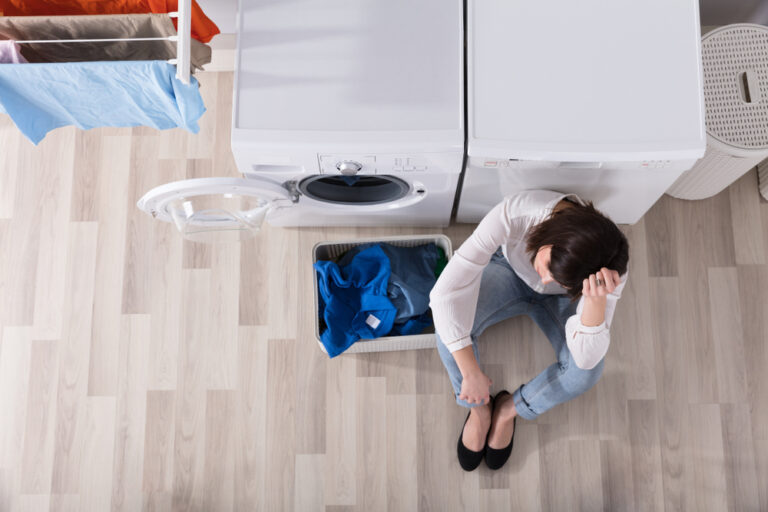Changing the Filter on Your Samsung Refrigerator: A Step-by-Step Guide
Introduction
Keeping your appliances in top shape is essential for a seamless household experience. One of the most vital yet often overlooked aspects of maintenance is changing the water filter in your refrigerator. If you own a Samsung refrigerator, you might be wondering, "How do I go about changing the filter?" This guide will take you through each step, ensuring that you can enjoy clean, fresh-tasting water and ice.
Why Change Your Samsung Fridge Filter?
Changing the water filter in your refrigerator isn't just about taste; it also impacts your health. Over time, filters accumulate contaminants that can lead to poor water quality. From chlorine and sediment to heavy metals, these impurities can affect both your drinking water and ice quality.
Moreover, a clogged or outdated filter can strain your refrigerator’s water system, leading to issues down the line. With so much at stake, regular replacement is essential.
Understanding Your Samsung Refrigerator Filter
Types of Filters Used in Samsung Refrigerators
Samsung refrigerators typically use two types of filters: internal and external. Internal filters are built into the fridge unit while external filters are usually part of a separate filtration system.
Internal Filters
- Location: Often found in the upper right corner inside the main compartment.
- Replacement Frequency: Every six months or as indicated by your fridge’s alert system.
External Filters
- Location: These are connected to your home’s plumbing system.
- Replacement Frequency: Usually recommended every 12 months.
Identifying When to Change Your Filter
Most modern Samsung refrigerators come equipped with an alert system that notifies you when it’s time to change the filter. However, if you notice any of the following symptoms, it may be time for a change:
- Decreased water flow
- Unusual tastes or odors in water/ice
- Ice cubes appearing cloudy
Tools You'll Need for Changing the Filter on Your Samsung Refrigerator
Before diving into the actual process of changing the filter on your Samsung refrigerator, it's wise to gather all necessary tools. Here's what you'll need:
Changing the Filter on Your Samsung Refrigerator: A Step-by-Step Guide
Step 1: Gather Your Supplies
Make sure you've collected all necessary supplies before starting this project. Having everything at hand will streamline the process and minimize interruptions.

Step 2: Locate the Water Filter
In most Samsung refrigerators, you'll find the water filter located in one of two places:
- Inside the fridge compartment (upper right corner)
- At the base grille
Check your user manual if you're unsure where yours is located.
Step 3: Prepare for Replacement
To avoid spills, place a towel underneath where you'll be working. If you're dealing with an external filter, ensure you turn off any water supply connecting to it before proceeding.
Step 4: Remove Old Water Filter
Carefully twist or pull out the old filter according to its design:
- For twist models: Turn counterclockwise until it releases.
- For pull-out models: Simply pull straight out.
Tip: Some residual water may spill out during this step; hence why we prepared with a towel!
Step 5: Insert New Water Filter
Take your new filter and align it correctly based on its design—either push straight in or twist clockwise until secure.
Step 6: Reset Water Filter Indicator (if applicable)
Once you've installed your new filter, don't forget to reset any indicators on your fridge. This action allows you to track when it's time for another change accurately.
How to Reset:
Step 7: Run Water Through The New Filter
To affordable dishwasher fixing services ensure any loose carbon particles are flushed out from your new filter:

Step 8: Finalize The Process
After running water through and checking for leaks:
Common Issues After Changing The Filter
Despite following these steps carefully, some common issues might arise post-installation:
- Low Water Pressure
- Leakage from Connections
- Unpleasant Taste Remains
If you're experiencing these problems after replacing your filter, consider reaching out to professional appliance repair services or doing some troubleshooting yourself.
FAQs About Changing Filters
Q1: How often should I change my Samsung refrigerator's water filter?
A: Generally speaking, every six months is recommended unless indicated otherwise by alerts from your appliance.
Q2: What happens if I don't change my fridge's water filter?
A: Failing to replace an old filter can lead to contaminated drinking water and decreased ice quality over time due to buildup within systems.
Q3: How do I know what type of filter my Samsung model requires?
A: Referencing your user manual will provide specifics regarding compatible filters for optimal performance; alternatively check online resources or retailer specifications.

Q4: Can I use third-party filters instead of OEM ones?
A: While third-party filters may fit physically they might not meet strict quality standards set by manufacturers—best practice suggests sticking with OEM parts whenever possible!
Q5: Is changing a refrigerator's water filter something I can do myself?
A: Absolutely! Most users find replacing their refrigerator’s water filters straightforward enough without needing specialized knowledge or tools beyond basic household items!
Q6: Where can I find help if I'm having trouble with my Samsung fridge?
A: Searching "appliance repair near me" online will yield local technicians who specialize in brand-specific repairs including unique repair services reviews from previous customers—always good practice before making selections!
Conclusion
Changing the filter on your Samsung refrigerator is not only a simple task but one that significantly enhances both health benefits and appliance longevity! By following our detailed guide—“Changing The Filter On Your Samsung Refrigerator: A Step-by-Step Guide”—you can ensure quality drinking water flows freely from this small appliance!
Should you encounter difficulties throughout this process or experience ongoing issues post-change—it may be beneficial reaching out directly towards qualified professionals—searching terms such as "refrigerator repair near me" could be invaluable here! Remember that well-maintained appliances save money over time through efficiency gains alongside reduced repair frequency down-the-line!